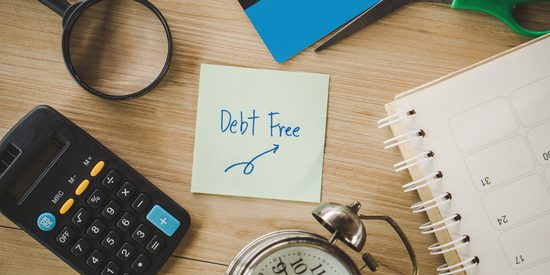Managing outstanding debts is a critical aspect of financial health for both individuals and businesses. Deciding whether to pursue legal action or write off a debt requires careful consideration of various factors, including the debtor’s financial situation, the amount owed, and the potential costs involved in recovery. Legal Recoveries & Collections (LRC) offers an Online Debt Manager portal that assists clients in making informed decisions regarding debt recovery.
Understanding Debt Write-Offs
A debt write-off occurs when a creditor determines that a debt is unlikely to be collected and removes it from their financial statements as an asset. This process acknowledges the loss and allows the creditor to adjust their financial records accordingly. Common scenarios leading to a debt write-off include:
- Prolonged Delinquency: Debts unpaid for an extended period, typically over 90 days, may be considered for write-off.
- Debtor Bankruptcy: If a debtor files for bankruptcy and lacks sufficient assets to cover the debt, creditors may decide to write off the debt.
- Cost-Prohibitive Recovery: When the expenses associated with pursuing the debt exceed the amount owed, writing off the debt becomes a practical option.
When to Consider Writing Off Debt
Writing off a debt is a significant decision that should be based on a thorough assessment of the following factors:
- Debtor’s Financial Condition: If the debtor demonstrates an inability to pay due to financial hardship, prolonged unemployment, or severe health issues, and there is little expectation of improvement, writing off the debt may be appropriate.
- Debt Amount: For relatively small debts, the cost of legal proceedings may outweigh the potential recovery, making a write-off a more sensible choice.
- Age of the Debt: Older debts, especially those approaching or beyond the statute of limitations, are less likely to be recoverable, suggesting that a write-off could be the best course of action.
- Previous Collection Efforts: If multiple attempts to collect the debt have failed, and the debtor is unresponsive or untraceable, writing off the debt might be the most practical solution.
When to Proceed with Legal Action

Legal action can be an effective tool for debt recovery, but it should be pursued when the following conditions are met:
- Debtor’s Ability to Pay: If the debtor has assets or income streams that can satisfy the debt, legal action may result in successful recovery.
- Significant Debt Amount: For substantial debts, the potential recovery justifies the costs associated with legal proceedings.
- Clear Documentation: Having comprehensive records and evidence of the debt strengthens the case in legal proceedings.
- Previous Agreements: If the debtor has previously agreed to payment plans or acknowledged the debt, legal action can enforce these commitments.
- Within the Statute of Limitations: Legal action must be initiated within the legally defined time frame for debt recovery to be valid.
Balancing Costs and Benefits
Before deciding on legal action, it’s crucial to weigh the potential benefits against the associated costs:
- Legal Fees: Attorney fees, court costs, and other legal expenses can accumulate, especially if the case is prolonged.
- Time Investment: Legal proceedings can be time-consuming, diverting resources from other business activities.
- Reputation Considerations: Aggressive debt collection tactics may harm the creditor’s reputation and customer relationships.
LRC’s Online Debt Manager provides clients with real-time access to their cases, enabling them to monitor communications, track costs, and assess the progress of debt recovery efforts. This transparency aids in making informed decisions about pursuing legal action or opting for a write-off.
Alternative Debt Recovery Strategies
In addition to legal action and write-offs, creditors may consider alternative strategies:
- Negotiated Settlements: Reaching an agreement with the debtor for a reduced payment can result in partial recovery without legal intervention.
- Payment Plans: Establishing manageable payment arrangements can facilitate debt recovery over time.
- Third-Party Collection Agencies: Engaging professional debt collectors can outsource the recovery process, though it may involve additional costs.
Conclusion
Deciding between pursuing legal action and writing off a debt involves careful consideration of the debtor’s circumstances, the debt amount, potential recovery costs, and the likelihood of successful collection. Utilising tools like LRC’s Online Debt Manager portal can provide valuable insights and streamline the decision-making process, ultimately supporting effective debt management strategies.




